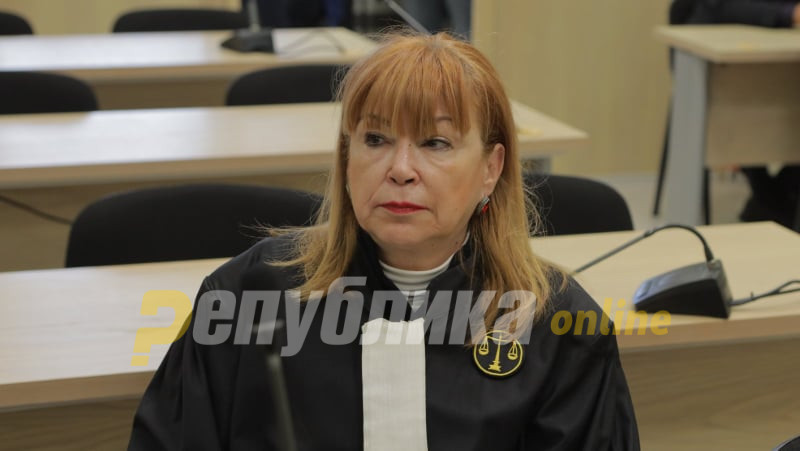Prosecutor Vilma Ruskoska acknowledged that there is no factual evidence that the VMRO-DPMNE party organized the United Macedonia protests on April 27 2017, during which the incident in the Parliament occurred. Ruskoska, who is one of the most reliable supporters of the Zaev regime in the judiciary, is pursuing a number of former VMRO officials for the incident, which erupted when the SDSM and DUI parties staged an irregular vote to elect a new Speaker – a move opposed by a large majority of ethnic Macedonians.
During the hearing today, Ruskoska confirmed that there is no decision made at the level of the VMRO party to support the protests. Instead, she is relying on the testimony of a witness, who is eager to receive a lighter sentence for participating in the incident. The court today heard from former VMRO officials Gordana Jankuloska and Nikola Todorov, who both confirmed that the party never made a decision to support or organize the protests, which had their own organization structure.
To a degree the statements from the witnesses are correct. There is no official document that the party is organizing the protests. I can’t tell what effect will the witness testimony have on the court. Once the verdict is reached, we will know the court’s thinking. The testimonies from the witnesses are identical – there is no official document reached at the Executive Committee or Central Committee level of the party to support their involvement in the organizing of the protests, Ruskoska said.
A new element introduced today was the statement from Todorov that the incident occurred at a time when the party was in talks to form a broad coalition as a way out of the deep political crisis when the incident happened. Todorov said that this broad coalition was supposed to place Macedonia on road toward EU and NATO accession – implying that this would have included having VMRO-DPMNE support the name change that was imposed later. The incident cut short any such talks, and in the end the Zaev regime pushed the name change through Parliament supported only by a handful of VMRO members of Parliament, who were openly blackmailed and bribed to vote “yes”. The proposal was rejected at the referendum, with VMRO supporters largely abstaining from voting.
Zaev quickly responded to Todorov, who is now broadly supportive of his regime, and said that there were no such talks being held with him, leaving open the possibility that Todorov was in talks with someone else.





Comments are closed for this post.